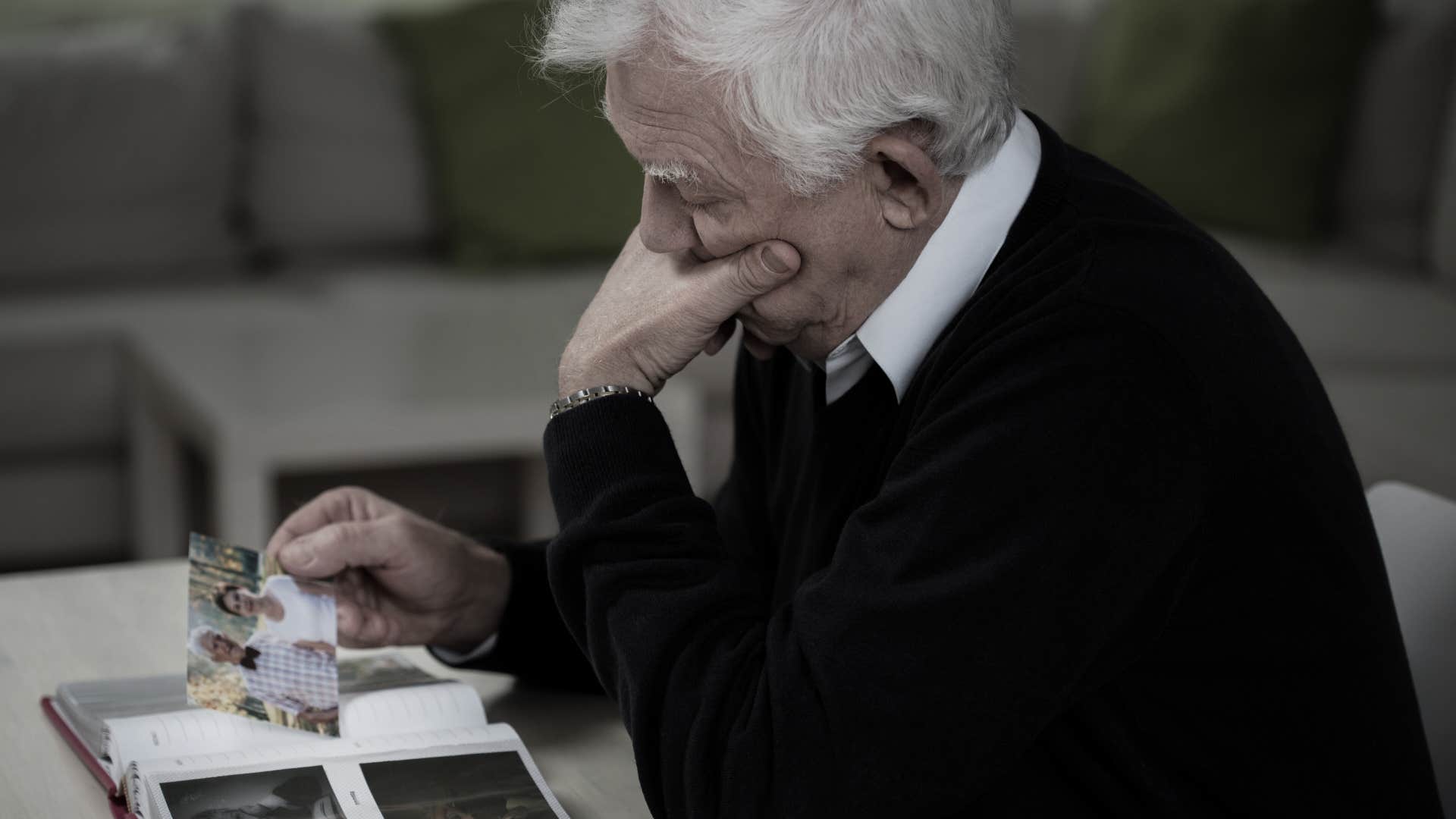People Who Secretly Regret Their Life Choices Often Have These 11 Habits
Some people seem like they have it all, but inside, they wish they'd done it all differently.
 Asier Romero / Shutterstock
Asier Romero / Shutterstock Regret has a quiet way of reshaping how people show up in the world. Unlike sadness or anger, it often reveals itself in subtle habits and unspoken behaviors that reveal more than words ever could. While some people process regret and move forward, others hold onto it like emotional debt, unsure of how to forgive themselves for choices they made or paths they didn’t take. The habits they form become less about moving forward and more about coping with a constant feeling that they missed out on the life they really wanted.
When you pay close attention, you might notice these patterns in people who seem just slightly out of sync with their own joy. They're not always unhappy, and they’re not failures by any stretch, but something in them never fully settled. Whether it's because of career choices, missed relationships, or roads not taken, these habits often signal the quiet presence of a deep and lasting regret.
People who secretly regret their life choices often have these 11 habits
1. They minimize their accomplishments
 RyanKing999 via Canva
RyanKing999 via Canva
People who quietly regret their life choices often downplay what they’ve done, even if it’s objectively impressive. This isn’t about humility; it’s more about distancing themselves from a version of success that doesn’t feel fulfilling.
People who experience unresolved regret often develop a self-sabotaging inner narrative that keeps them from internalizing their achievements. Over time, this becomes a habit, making sure no one else believes their life turned out all that great either.
2. They redirect conversations away from life milestones
 Chevanon Wonganuchitmetha from chevanonwonganuchitmetha via Canva
Chevanon Wonganuchitmetha from chevanonwonganuchitmetha via Canva
Ask them about marriage, kids, or major career moves, and they’ll steer the conversation elsewhere. Not because they don’t have anything to say, but because these topics can trigger a sense of comparison or perceived failure.
Studies on social comparison theory show that when people feel behind their peers, they tend to avoid discussions that emphasize those gaps, especially in group settings. It’s less about privacy and more about protecting themselves from reawakening regret.
3. They make frequent “if only” or “what if” comments
 Rido via Canva
Rido via Canva
Even in casual conversation, you’ll hear it: “If only I’d taken that job…” or “What if I had moved when I had the chance?” These rhetorical questions serve as a coping mechanism that is part nostalgia, part self-punishment.
Psychologist Neal Roese has written extensively about counterfactual thinking, where the brain constructs imagined alternatives to past events, often linked to long-term emotional distress. People who habitually use these phrases are often caught in this loop without even realizing it.
4. They over-invest in the success of others
 Monkey Business Images via Canva
Monkey Business Images via Canva
Whether it's their partner, their kids, or friends, people with unresolved regret often funnel their unfulfilled ambition into someone else’s goals. While this can look generous or selfless, it can also be a way to live vicariously through others.
People with high levels of unresolved regret are more likely to seek meaning through the achievements of close relationships, often at the expense of their own growth.
5. They have a hard time enjoying the present moment
 fizkes from Getty Images Pro via Canva
fizkes from Getty Images Pro via Canva
You’ll notice they’re often distracted, disengaged, or overly focused on what's next. Mindfulness studies, including work from Harvard psychologists Killingsworth and Gilbert, show that people who frequently think about the past or the future report significantly lower happiness levels than those who focus on the present.
For people wrestling with regret, the present can feel like a reminder of what could have been rather than something to embrace.
6. They joke about their past, but with an edge
 mediaphotos from Getty Images Signature via Canva
mediaphotos from Getty Images Signature via Canva
Self-deprecating humor is often a go-to defense for people with regret. They’ll laugh about their “bad choices” or say they peaked in college, but there’s usually a bite behind the smile.
Humor researchers note that this form of joking, known as self-defeating humor, can be a red flag for poor mental health and unresolved emotional conflict. It’s meant to diffuse discomfort, but it often does the opposite for those paying close attention.
7. They’re overly nostalgic about a specific time in life
 KatarzynaBialasiewicz from Getty Images via Canva
KatarzynaBialasiewicz from Getty Images via Canva
People who regret their current circumstances often idolize a particular period from the past. It might be high school, a specific job, or a relationship that ended years ago.
This kind of selective nostalgia can create a distorted emotional timeline, according to research, which found that people with high levels of life regret tend to idealize “the good old days” in a way that impairs present-day satisfaction and decision-making.
8. They resist making decisions
 pixelshot via Canva
pixelshot via Canva
After making choices they regret, some people start avoiding decisions altogether. Even small decisions, such as choosing a restaurant or picking a vacation spot, can cause unnecessary stress.
This pattern is linked to what psychologists call decisional regret, where people develop a fear of repeating past mistakes and become paralyzed by future ones. The longer it continues, the more disempowered they feel.
9. They’re overly fixated on other people’s timelines
 Xsandra from Getty Images Signature via Canva
Xsandra from Getty Images Signature via Canva
They’ll ask about your job, your partner, your new house, but it’s not always curiosity. Often, it’s comparison disguised as conversation.
A 2021 study in Computers in Human Behavior found that passive observation of others' achievements, primarily through social media, correlates with heightened feelings of regret, inadequacy, and depressive symptoms. The fixation is part of how they measure what they think they missed.
10. They speak in absolutes about their future
 Prostock-studio via Canva
Prostock-studio via Canva
You might hear things like “It’s too late for me now” or “That ship has sailed.” These statements serve as emotional shortcuts to avoid hope, risk, or change.
Psychologists call this learned helplessness, which is a belief that one’s actions no longer affect outcomes. It’s a defense mechanism for people who’ve been disappointed enough times that they start to believe forward motion is no longer an option.
11. They are strangely supportive of other people’s life pivots
 andreswd from Getty Images Signature via Canva
andreswd from Getty Images Signature via Canva
Ironically, the people who regret their own life choices are often the loudest cheerleaders for someone else making a bold move. When they do this, it's often a sign of their own longing.
Research suggests that watching someone else take a leap can stir powerful emotions in those who never did. Their support is real, but it’s also tinged with sadness, because your courage reminds them of the one thing they wish they’d had: the nerve to start over.
Sloane Bradshaw is a writer and essayist who frequently contributes to YourTango.

